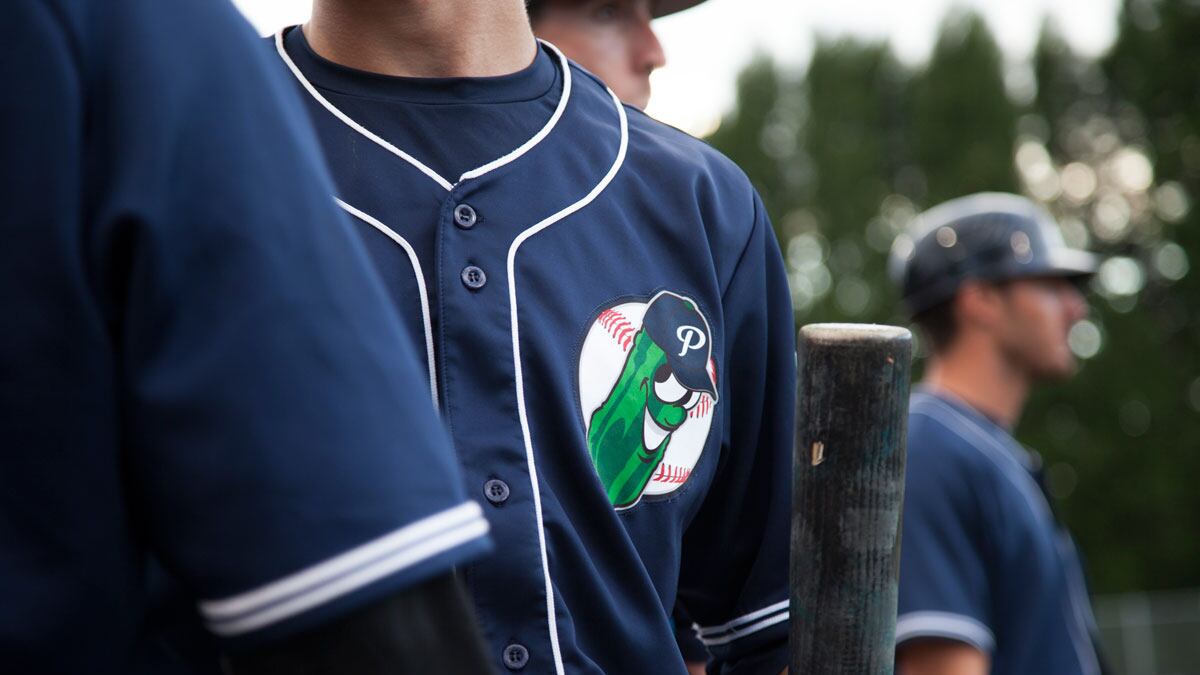Backers of a plan to bring Major League Baseball to Portland have pledged that their odyssey would require "no new" public funding.
That's in part because a huge funnel for public dollars already exists in Oregon—and has for 15 years.

The big advantage for the Portland Diamond Project? A unique piece of legislation championed by an earlier group—one that could provide a $150 million public subsidy for the team.
In 2003, lawmakers passed Senate Bill 5, which would allow a Portland baseball team to capture the state income taxes generated by the team's payroll.
In other words, the taxes players pay on their salaries would automatically be sent back to the team's front office.
Such a ballpark financing scheme doesn't exist anywhere else in the nation.
Then-state Sen. Ryan Deckert (D-Beaverton) and state Rep. Vic Backlund (R-Keizer) pushed the bill while Portland was in hot pursuit of the Montreal Expos (who eventually relocated to Washington, D.C., and became the Nationals).
"It was one of the most memorable moments of my legislative career," says Deckert. He resurrected the tax break with the simple legislative wizardry of stuffing it into a bill that had already passed the Senate.
What Deckert passed is called "but for" legislation. It allows any Major League Baseball team in Portland to capture income tax revenue that would not exist "but for" the relocation of the team to Portland.

MLB teams' payrolls commonly exceed $100 million, and team officials whose salaries exceed $50,000 would also be part of the special tax. The law allows the Legislature to make payments to the team, in effect advancing the anticipated tax revenues each year.
James Sinks, a spokesman for State Treasurer Tobias Read, confirms the 2003 bill could be used to fund the current effort to attract an MLB team to Portland. Sinks says the Diamond Project would still need to meet certain criteria to get access to the $150 million.
First, the Legislature has to agree to give the team an amount estimated to equal the tax payments it would generate. Second, Read, who as treasurer is responsible for safeguarding Oregon's creditworthiness, must also approve.
A third condition is that the team must play in Portland, not the suburbs—which limits the geographic options for building a stadium. That rules out, for instance, the 31-acre Wood Village site that holds the former Multnomah Greyhound Park. That site is owned by the Grand Ronde Tribe, which in 2003 offered to fund an MLB stadium in Portland.
Portland Diamond Project representatives met with Read on Feb. 21. Sinks says the conversation concerned building political support to bring a team to Portland, rather than seeking the treasurer's blessing for making the SB 5 money available.
"It's no secret that I love the idea of Major League Baseball in Portland and bringing in more tourist dollars and jobs to the state," Read said in a statement. "As treasurer, if we get to the point where the Legislature is asked for support, our team will carefully review any proposal and ensure that the financial underpinnings of that request are sound."
(A spokesman for Gov. Kate Brown says the Diamond Project has not contacted Brown's office yet.)
Public subsidy, even if it comes from a pre-existing source such as Senate Bill 5, is a controversial subject.

Andrew Zimbalist, a Smith College professor who is the nation's leading expert on the economics of professional sports stadiums, says the average stadium deal made in the past two decades included 60 percent public money.
But Zimbalist says Portlanders should be wary. Beyond construction spending, he says, new stadiums typically just shift consumer dollars away from expenditures on other sports or forms of entertainment.
"What usually happens is new stadiums cannibalize existing spending," Zimbalist says.
Jody Wiser of the watchdog group Tax Fairness Oregon says diverting money from the state's general fund to benefit wealthy individuals—owners and players—is bad policy.
"We'd be subsidizing a pretty nonproductive use of very valuable land," Wiser says. "I haven't seen any mechanism like this used for a worthwhile purpose."
She notes that if the taxes players generate go back to the team, players would not be contributing to pay for basic public services. "We'd be educating their children for free," Wiser says.
Others sense an additional request for cash on the horizon.
Wally Van Valkenburg, former longtime managing director of Stoel Rives, the city's largest law firm, was part of the group behind the 2003 legislation.
"I don't see how you get a stadium built without more support than the Legislature passed in 2003," Van Valkenburg says. "It's a question of how much value do people see in having a team here."

These 11 People Will Decide the Fate of a Portland Baseball Stadium
As Portland Aims for the Major Leagues, Which Comes First: The Ballclub or the Ballpark?

